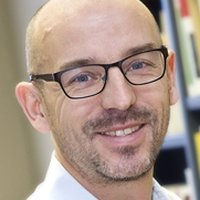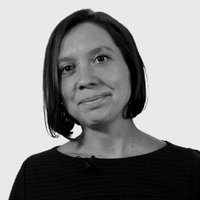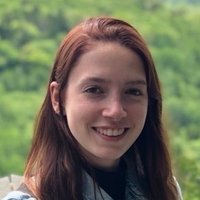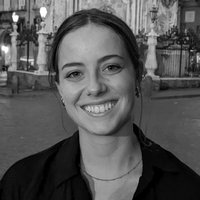Knowledge Translation 3 – Knowledge Brokering
- Durée : 15 heures
- Rythme : À votre rythme
Welcome to this MOOC, part 3 of a series titled Knowledge Translation: Promoting Evidence-informed Practices and Policies.

RENARD103-EN+2T2025
- Inscription
- Du 1 mai 2025 au 30 avril 2026
- Cours
- Du 1 mai 2025 au 30 avril 2026
- Langues
- Anglais
Description
These days, researchers, practitioners and decision makers are placing greater emphasis on using evidence to improve interventions, healthcare and the well-being of populations. This trend is particularly significant in sectors that address social issues such as health, social, educational and judicial interventions and services. This movement can be seen in the emergence of new approaches that promote an increased use of research: knowledge translation, evidence-informed decision-making and practices, knowledge mobilization, knowledge utilization, knowledge enhancement, etc.
Studies on the subject show that the process leading to the use of knowledge is so complex that science and research still barely get taken into account in practice and decision-making communities. There is consensus in scientific literature that the efforts made to make scientific knowledge available are necessary, but not sufficient, for their actual use in practice communities. This course has been designed to address these issues.
Among the strategies employed to put scientific knowledge into action, knowledge brokering represents a promising avenue. What does it involve?
In this MOOC, knowledge brokering is defined as a process that relies on an intermediary (a person or an organization) and that is aimed at fostering interactions between the worlds of research, practice, and decision-making. Brokering activities can include identifying valid and relevant knowledge, transforming it into an appropriate format, and transmitting it to different target audiences, or facilitating the implementation of this knowledge to improve practices and policies.
(Definition adapted from Munerol, Cambon & Alla, 2013)
This MOOC will allow you to familizarize yourself with the main activities of a knowledge broker, such as developing a brokering mandate, managing and synthesizing knowledge, facilitating stakeholder networks, building capacity, or planning a knowledge translation process and supporting change.
By the end of this course, you will be able to identify the different activities that a knowledge broker can perform, as well as the skills required to carry out these activities. You will also learn how to identify the best available knowledge and evaluate its quality and usefulness in meeting a specific need. Finally, you will be able to describe the various steps needed to carry out a brokering approach.
Module Overview
- Module 1 – Introduction to knowledge brokering
- Module 2 – Preparing and planning a knowledge brokering mandate
- Module 3 – Evidence-based problem-solving (for decision-making)
- Module 4 – The different methods for systematic reviews of scientific knowledge
- Module 5 – Adapting and disseminating knowledge: the knowledge translation toolkit
- Module 6 – Supporting a change process
Other MOOCs in this series
Knowledge Translation 1 - Introduction
Knowledge Translation 2 - Policy Brief
This series of courses is free and accessible throughout the year. You can participate at your own pace.
It was developed by the RENARD research team (équipe de Recherche sur les Effets Non-Académiques de la Recherche et ses Déterminants) in collaboration with the IRD (Institut de Recherche pour le Développement) and with the support of Université de Montréal’s CPU (Centre de pédagogie universitaire).
How does the course work
Several teaching methods are used to facilitate your learning:
• Educational videos presenting theoretical notions and concrete examples
• Vox pops presenting the point of view of people working in the field
• Short quizzes to validate your understanding of the concepts presented
• Readings to consolidate and deepen your learning
• Practice exercises allowing you to put into practice the notions learned
Target audience
This online course is intended for anyone who has, or wishes to have, a role as an intermediary between research, practice and decision-making, as well as members of the research community who wish to familiarize themselves with this role or adopt a knowledge brokering approach.
Course certificate
This MOOC represents approximately 15 hours of free content. Graded activities leading to a certificate of achievement is available for a fee. You will also have the option to obtain a free certificate of achievement.
Autres sessions de cours
Archivé
- RENARD103-EN+2T2024, inscription du 25 juin 2024 au 30 avril 2025
Équipe pédagogique
Dagenais, Christian
Catégories
Ridde, Valéry
Catégories
Aurélie Hot
Catégories
Conseillère principale de recherche, Université de Montréal, Coordonnatrice de l’Équipe RENARD de recherche sur le transfert de connaissances
With the participation of...
Julie Lane, Ph.D.
Professor | Université de Sherbrooke
Jacques Fortin, MScN
President | Jacques Fortin Gestion Santé Inc.
Emmanuelle Jean, Ph.D.
Coordinator | Consortium Interrégional de Savoirs en Santé et Services sociaux INTERS4
Ève-Line Bussières, Ph.D.
Professor | Université du Québec à Trois-Rivières
Ollivier Prigent, M.P.H.
Ph.D. Candidate | Université de Sherbrooke
Instructional design
Dominique d’Anjou
Instructional Designer | Centre de pédagogie universitaire, Université de Montréal
Caroline De Coninck
Instructional Designer | Centre de pédagogie universitaire, Université de Montréal
Media
Francis Brosseau
Media Designer | Centre de pédagogie universitaire, Université de Montréal
Mélodie Averna
Media Designer | Centre de pédagogie universitaire, Université de Montréal
Michel Desroches
Cameraman | Productions Michel Desroches
Thomas Zoricak et Romain Laporte
Audiovisual Production | Service AGIR - Université Paris Descartes
Special Project Advisor
Robert Gérin-Lajoie
Special Project Advisor | Centre de pédagogie universitaire, Université de Montréal
Support & quality control
Vincent Laberge
EDUlib | Centre de pédagogie universitaire, Université de Montréal
Partners
 | 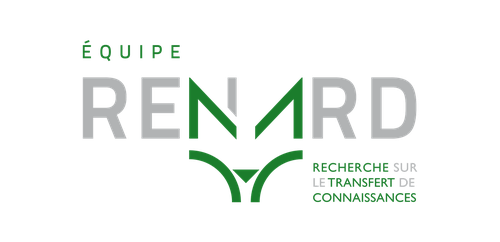 |
We also wish to thank all the knowledge brokers who were featured in the vox pop videos!
The content of this course is available under Creative Commons licence "CC BY-NC-ND"
Content offered under this licence can be used (without modifications) for non-commercial purposes as long as credit is given to the creator.


